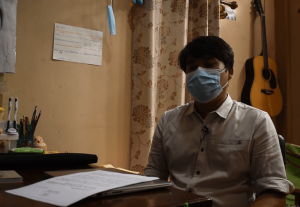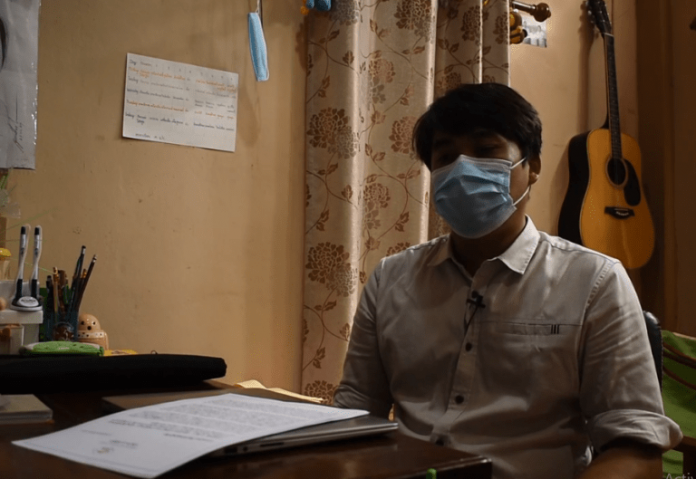Nai Banyar Aung interviewed Nai Aue Mon, the author and Program Director of HURFOM, who wrote “Without Inclusivity, No Free and Fair Elections” a report highlighting 2020 electoral challenges facing voters.
Question : Why did you undertake this project and write the report, “Without Inclusivity, No Free and Fair Elections”?

Answer : We wanted to look at the citizenship and political rights of those in our country, specifically to assess to what degree can people be involved in this election process? We listened to the voices of people telling us of their difficulties. The report is the compilation of those voices.
Question : What are some of the problems facing first time voters?
Answer : There are many issues that are beyond simple reaching legal voting age. For example, in many of our areas controlled by ethnic armed groups, we see a lot of unregistered households list. In terms of percentage, it is between 38% to 45% in those areas. In the 2015 election in Ye Chaung Phya, Ye Township, Mon State, 19 communities could not participate. In the 2020 election, we can see that the percentage is much better than it was in 2015.
There will be other issues, for example getting to the polling station. We have collected the voices of the people and advocated for the UEC to open and expand polling stations. That is why we released the report a month in advance of the election.
Question : How far are villages from polling stations?
Answer : For example, it is at least 3 miles from the Mon controlled area to Kyaung Ywar village, Ye Township, which is where people would have to go to vote. In other cases, the maximum distance is 8 miles. As a result of these distances, people were not able to vote in 2015. We are advocating for an expansion of polling stations.
Question : Where did you conduct the research for this report ?
Answer : We designated six townships in our project area. We collected information from Kyar Inn Seik Gyi, Kyaikmaraw Township, Ye Township, Mudon Township, Thanbyuzayat Township and Ye Phyu Township in northern Tanintharyi. We have collected people’s voices and their challenges in order to make this report possible.
Question : There have been recent announcements that polling stations will not be allowed in the NMSP area, so how many people can vote there?
Answer : Our estimates are that there are at least 2000 to 2500 villagers living in the NMSP controlled area. This is the least predictable situation. If we can do more research, I think we will be able to find more information.
Question : In the New Mon State Party (NMSP), we saw in the news that 2000 people were allowed to vote, so is the current number of polling stations enough? What are other challenges?
Answer : This concern is also something we heard a lot about from people. We plan to inform the relevant UEC and party representatives to consider if there are enough polling stations, and to take precautionary measures to prevent problems.
Question : We have heard that about 500 people are now unregistered. According to the report, the Immigration Department will issue a letter of recommendation and make arrangements to allow people to vote, but will this really happen? How long will it take to get a vote without a registration card?
Answer : Normally, you can only participate in elections if you can show proof of citizenship. For example, in Thailand, which is close to us, the same thing applies with citizenship. This is an extraordinary situation, and this could happen if the Union Election Commission and the Department of Immigration and Population formulate a policy. We will see on November 8 whether this will happen or not. We still see the gap between the grassroots and the policy-making process.
Question : Lastly, can you give the latest advice to the armed ethnic groups, the government, the local people and the CSOs?
Answer : In places where the internet is not available, and no telephone citizens do not know their candidates or their platforms, making it very hard to exercise informed voting rights. The people there will be able to cast their ballots, but how do you make an informed vote?
According to research, there are a lot of young people who will vote for the first time in the 2020 election. It’s very difficult for them to have good voting information, but we believe that by working together, we can bring about the theme and importance of having free, fair and informed voter education in 2020.

